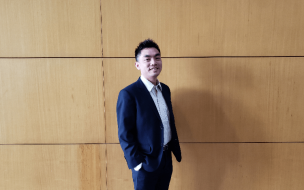China has undergone a large transition in the 21st century. A race to achieve carbon neutrality is being driven by the country’s leadership, while China’s commercial sector is increasingly focused on sustainable business practices.
For ambitious professionals aiming to launch impactful careers in China, learning about the fundamentals of ESG provides a platform to make the most of opportunities presented by China’s green transition.
Today, top business schools in China, such as Fudan University School of Management (FDSM), are therefore bringing ESG principles to the very core of the MBA curriculum.
How ESG is shaping business in China
The global shift towards a more sustainable future is encapsulated in the United Nations Sustainable Development Goals, a list of 17 key targets that range from reducing inequality to the provision of affordable and clean energy.
The SDG Index, published annually, records each country's performance in relation to the 17 goals. Between 2016 and 2023, China’s position rose from 15th to 13th among all of the countries in the G20.
China’s increased focus on sustainable development has coincided with a growth in emphasis on ESG within its business landscape. Between 2013 and 2019, only the US’ San Francisco Bay Area—home of Silicon Valley—saw more venture capital funding for climate tech startups than Shanghai or Beijing.
Cementing the country’s commitment to a green transition, in 2020 Chinese president Xi Jinping announced plans for the country’s carbon emissions to peak before 2030 before achieving carbon neutrality by 2060.
China’s consumers, too, have changed. Recent years have seen the growth of more ethically conscious consumers, with more than 70% saying they accept sustainability concepts, a further 70% of whom say they have taken sustainable actions.
ESG has therefore taken a hold across the Chinese business landscape, with business leaders, companies, and even entire industries now required to increase their focus on transitioning to more sustainable practices.
A new form of ESG-related teaching
At FDSM, professors in the school’s flagship International MBA program in collaboration with MIT Sloan—which ranks among the 30 best programs worldwide and the top three in China—focus on preparing students to become global business leaders after graduation.
Fudan MBA students typically enter the program coming from mid-level or senior management roles. To become leaders of the future, they require a comprehensive education in the key areas dictating the direction of business growth.
ESG-related concepts are therefore now at the heart of the program’s offering to students. When first adopting ESG teaching, the school opted to design a new curriculum from scratch, rather than building on pre-existing teaching concepts.
The curriculum has been developed by an ESG teaching and research group which operates globally, conducting research and coordinating its findings from China, the US, and Canada.
"This course is the result of team collaboration. This year, it is being co-taught by me and professor Chen Hongzhi, [based in China], working together with professor Zheng Qinqin, who is visiting the US, and professor Bao Yongjian, in Canada," explains Wu Zheying, associate professor in the Department of Business Administration at FDSM.
This innovative, global approach has helped the school achieve a ranking as the best global MBA program in Asia for ESG and net zero teaching, according to the Financial Times.
Learning ESG principles at business school in China
At FDSM, the ESG curriculum taught within the MBA program blends theory with practical examples. Students learn using a broad range of case studies, while also developing their theoretical understanding of the subject.
Reflecting on his very first experience of ESG teaching during the program, current Fudan MBA student, Yang Shuwen, says: "Not only did the teacher explain the development trajectory and basic knowledge of ESG very clearly, but he also introduced a large number of domestic and international corporate cases, which deepened my understanding of the underlying logic of ESG and clarified some of my misunderstandings."
Moving forward, to further develop the Fudan MBA's credentials as a top destination for ESG teaching, the team behind the curriculum is now devising a textbook that will partner the latest case studies from China and beyond with theoretical teachings on ESG.
The school hopes that the new textbook will offer a comprehensive framework that can prepare students with a holistic knowledge of the subject.
For faculty involved in developing the innovative Fudan MBA ESG curriculum, the end goal is to develop MBA graduates who have the skillset and sense of social responsibility to go on and become leaders of the green transition, both in China and beyond.








